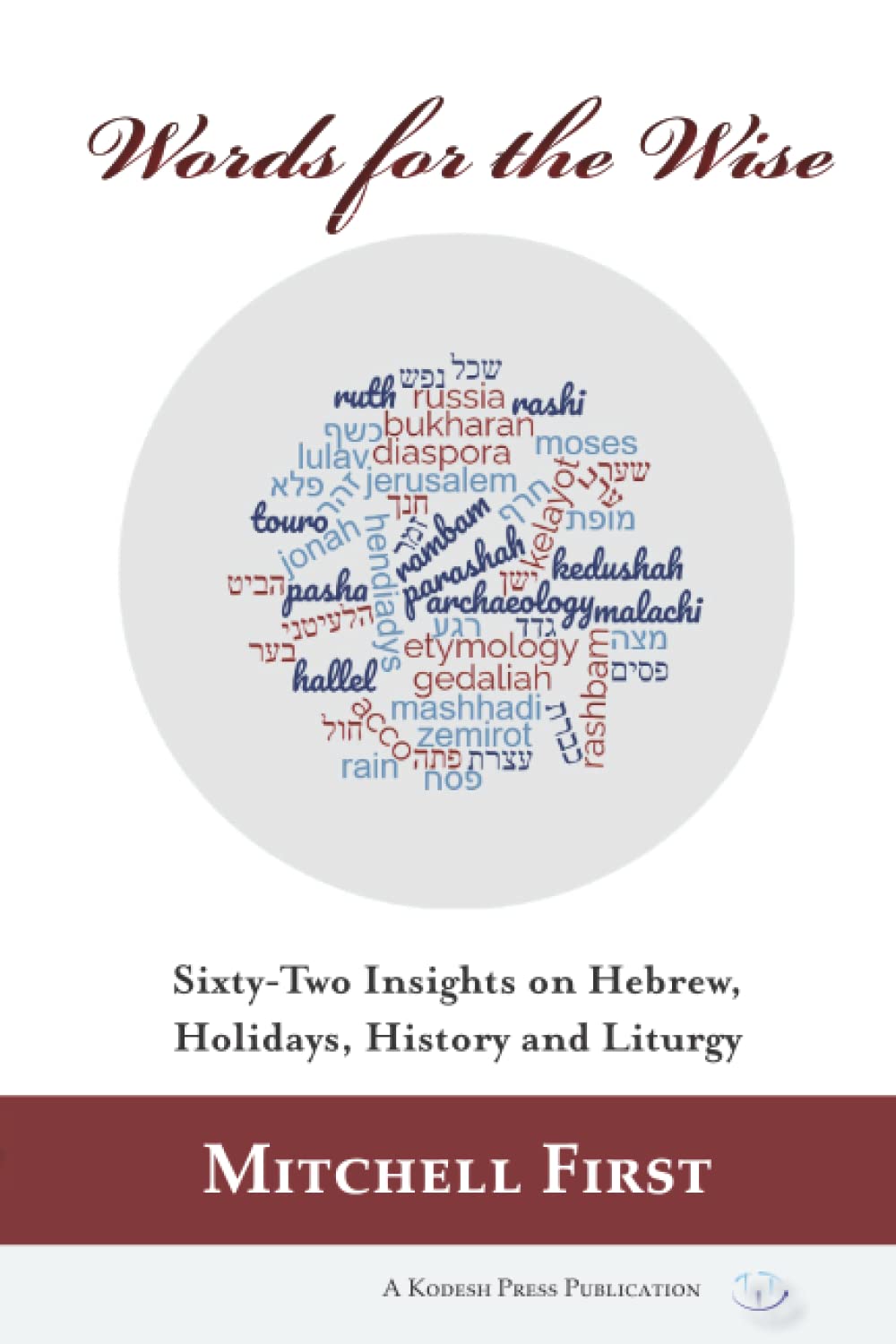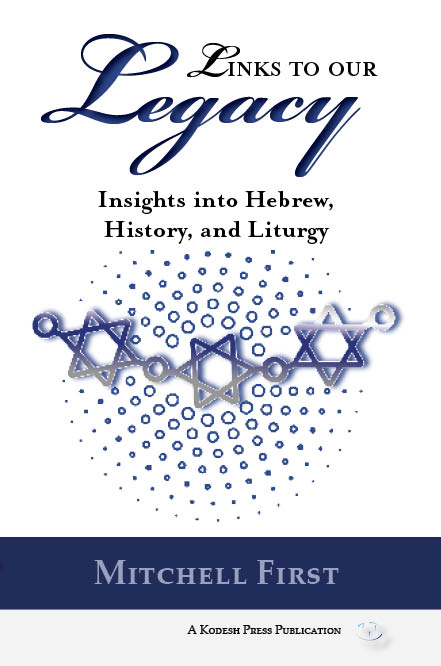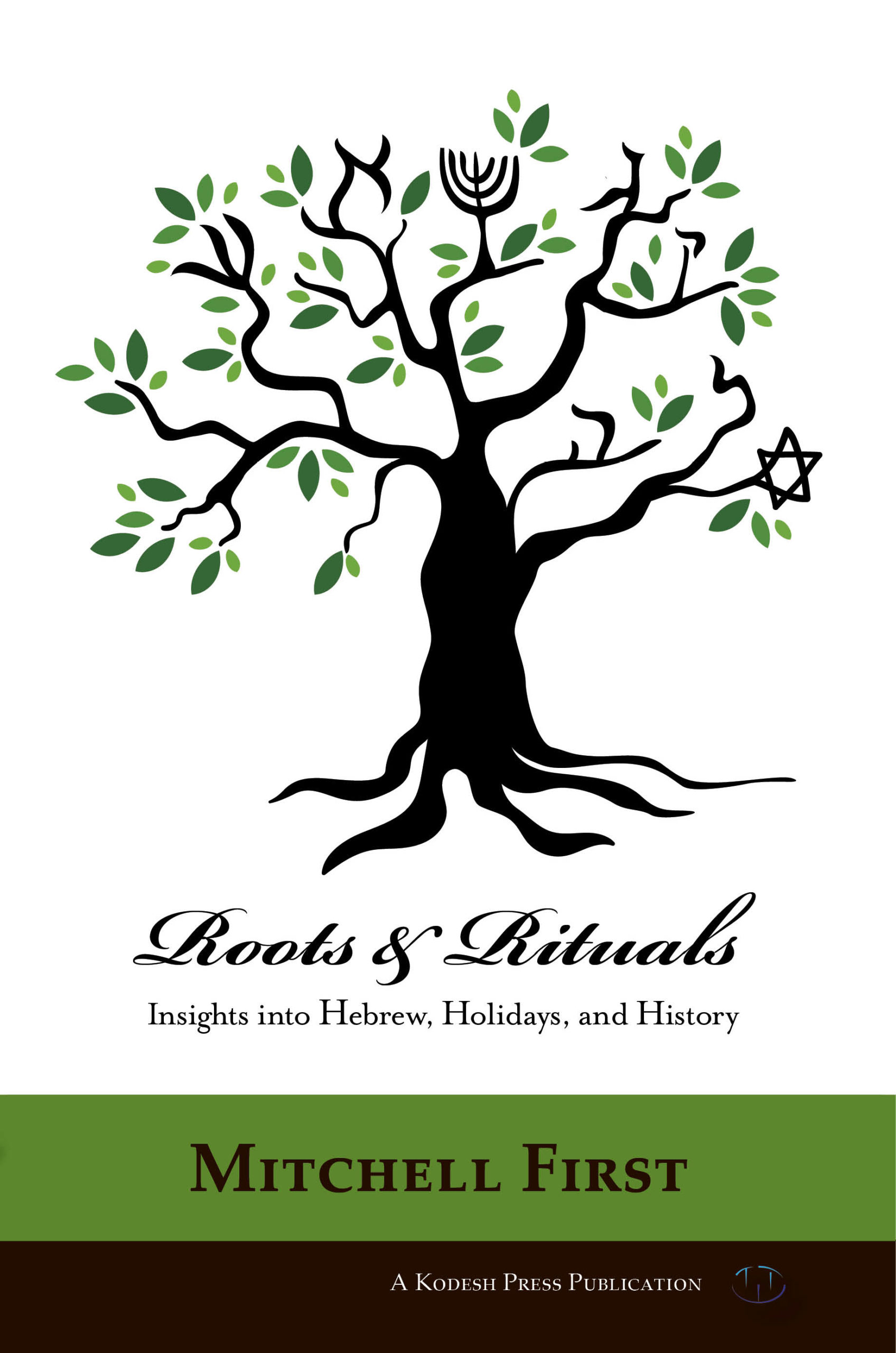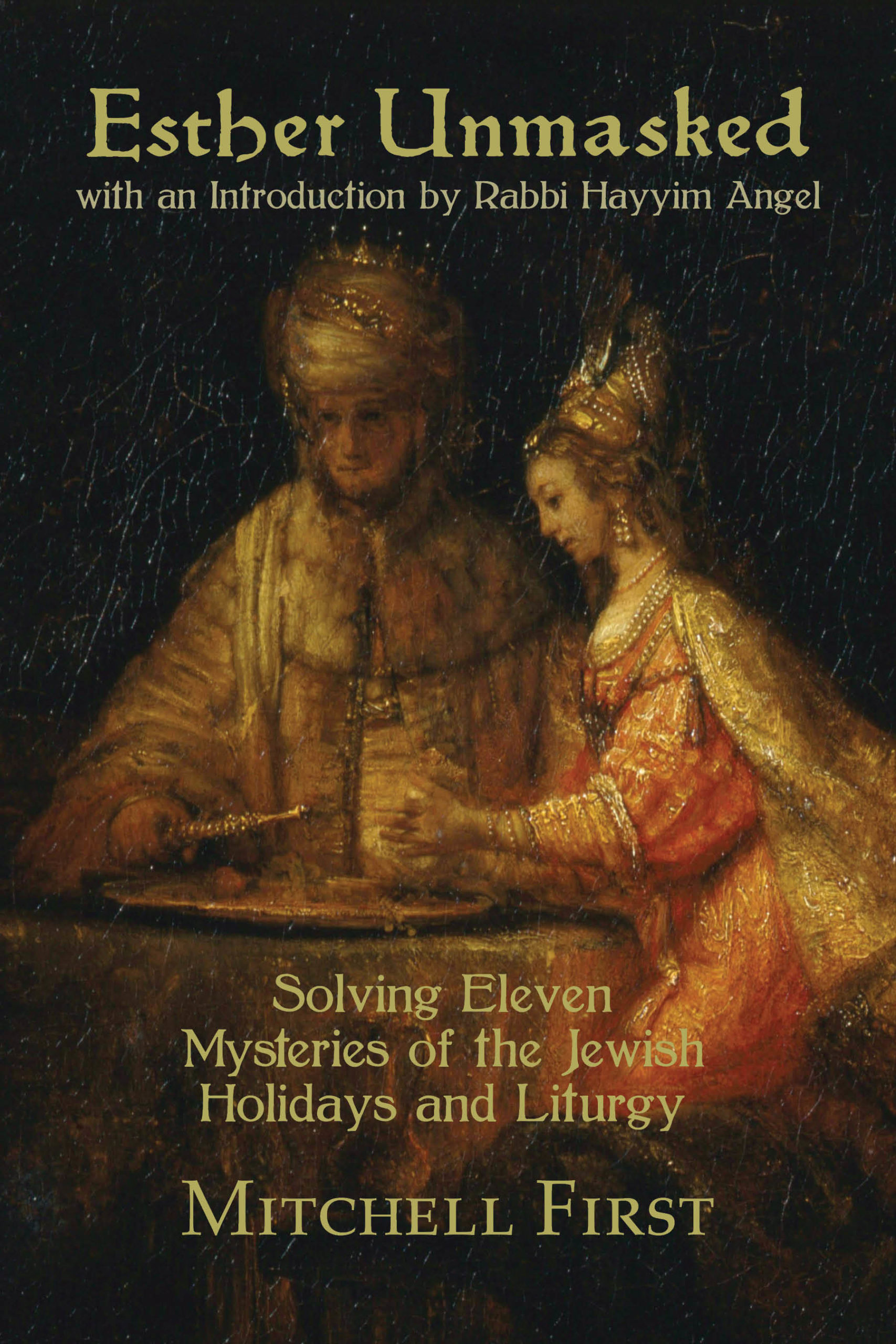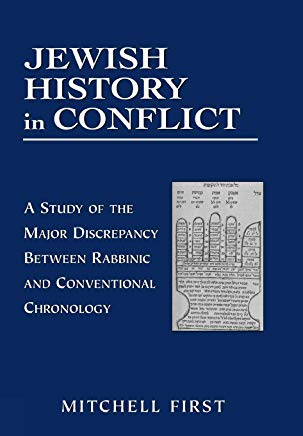Sixty-Two Insights on Hebrew, Holidays, History and Liturgy (Kodesh Press, 2022)
Words for the Wise contains sixty-two short articles on Hebrew, Holidays, History and Liturgy.
On Liturgy, 8 articles, including the origin of and insights into Shalom Aleikhem, Anim Zemirot, and Maoz Tzur.
On Holidays, 9 articles, including the origin of the recital of Le-David Hashem Ori, the underlying meanings of the words lulav, atzeret, and Pesaḥ, and the background to the Fast of Gedaliah.
On History, 18 articles, including a history of the city of Acco, and on the lives of Rashbam, Judah Touro, Golda Meir, and Yigael Yadin, and on an important manuscript of Rambam’s Mishneh Torah.
On Hebrew, 27 articles, including insights into the roots ישן ,חול ,זמר ,זהר and רגע, the etymology of the word ממזר, the meaning of כתונת פסים, and interesting words in Hallel.
$19.95
Insights into Hebrew, History, and Liturgy (Kodesh Press, 2021)
Mitchell First’s 66 short articles address interesting questions about the Hebrew language, Jewish history, and liturgy.
For example:
On Hebrew language: Insights into the original meanings of the words chamushim, totafot, kohen, minchah, nefesh, netzach, selah, tefillin and many others.
On Jewish history: The order of the letters in the Hebrew alphabet, the absence of the book of Esther among the Dead Sea Scrolls, the distinction between Neviim and Ketuvim, Rashi’s motivations in writing his Torah commentary, biography of Nehama Leibowitz, and the symbolism of the Israel Postal Company logo.
On Jewish liturgy: The meaning of sekhvi, the authorship of U-Netanneh Tokef, and the origin of the reading of each of the Five Megillot.
$19.95
Insights into Hebrew, Holidays, and History (Kodesh Press, 2018)
Mitchell First’s 62 short articles address interesting questions about the Hebrew language, liturgy, Jewish history, and the calendar and holidays. For example:
- On Jewish Liturgy: The origin of the Haftarah, the origin of the blessing “Who Has Not Made Me a Woman,” and the origin of our prayer for the government.
- On Jewish Holidays and Calendar: The origin of the count from creation, the meaning of Yom Teruah, the meaning of “Maccabee,” identifying Achashverosh and Esther in secular sources, and the original three questions in the Mah Nishtannah.
- On Hebrew Language: The origin of the words brit, boker, hefker, chalom, chatan, kesef, midbar, navi, olam, she’ol, and seraphim. Also, is there a connection between זכר meaning “male” and זכר meaning “memory”? Is there a connection between לחם and מלחמה? He also has articles on words that appear only once in Tanakh, biblical words of Egyptian origin, wordplay in Tanakh, and interesting words in the daily Amidah.
- This book also includes two longer articles: “The Meaning of the Word Hitpallel (התפלל)” and “The Root of the Word מבול: A Flood of Possibilities.”
“The articles are thoughtful, witty, well-written and – in many cases – challenge previously held assumptions…. The author has a unique talent for simplifying complex topics and making them understandable… Roots and Rituals provides a fascinating window into the origins of Hebrew words, practices and customs.” – Alan Rosenbaum (Jerusalem Post, 5/3/19)
$19.95
Solving Eleven Mysteries of the Jewish Holidays and Liturgy
Mitchell First is a very talented Jewish scholar. He is able to challenge traditional assumptions and reach new, often groundbreaking, conclusions. His articles are meticulously researched, relying both on rabbinic sources and historians of antiquity. A main article explains how both Achashverosh and Esther can be identified in ancient sources.
The entire volume consists of eleven articles that address mysterious aspects of the yearly cycle of Jewish holidays and liturgy: What is the meaning of the cryptic phrase in the Sukkot liturgy, “Ani ve-Ho”? What motivated Antiochus to persecute the Jews? What is the origin of Taanit Esther? How many questions were there in the original Mah Nishtannah? Why does Pe precede Ayin in the acrostics of the book of Eikhah?… and more.
“Mitchell First…combines extensive research into primary sources, the contributions of other contemporary scholars, and his own original ideas to build stronger structures in the pursuit of truth…All eleven essays in this collection are clear and accessible to interested laypeople, and will be stimulating for rabbis and scholars as well.” -Rabbi Hayyim Angel
“Eleven outstanding essays… Esther Unmasked is a real winner. Every essay is fascinating. Highly recommended. In every essay, First…sets the record straight in an honest and balanced manner, supporting virtually every sentence with the relevant sources from both Torah and secular sources. A high quality work of Torah scholarship that is readable and can be enjoyed and appreciated by all audiences.”- Rabbi Ari Enkin
“I cannot recall reading a similar work which was as intellectually stimulating, and moved me to the extent Esther Unmasked has…. The author has given me pause, made me think, and made arguments that are compelling enough to warrant further investigation. In my book there are few higher compliments than that.” -Moshe Isaacson
“I have read the essays of Mitchell First in Jewish journals for several years. All of them have revealed meticulous research, careful thinking, and original insight. His work on Esther in particular is nothing short of groundbreaking… His analysis is more than illuminating; it is inspiring. Highly recommended.” – J.L.
19.95
A Study of the Major Discrepancy between Rabbinic and Conventional Chronology
Book of the month in the Jewish Book Club (August 1997)According to Seder Olam Rabbah, the work that forms the basis for almost all rabbinic chronology, the period from the defeat of the Babylonians by the Medeo-Persians until the beginning of Greek rule, encompassed 52 years and spanned the reigns of three Persian kings. According to the chronology that is universally accepted by historians today (conventional chronology), this period of Persian rule over the land of Israel encompassed 207 years (539 to 332 BCE) and during this period more than ten Persian kings reigned.
The purpose of this study is to collect and categorize the variety of Jewish responses to this discrepancy, both by Jewish scholars and rabbinic authorities. This unified collection and categorization of the many responses will enable students and scholars to have easy access to what has been written by Jewish scholars and rabbinic authorities about the discrepancy and will facilitate scholarly evaluation of the responses.
Thereafter, the book includes an evaluation of the responses’ attempts to answer the fundamental question raised by the discrepancy and a summary and conclusion.
“Mitchell First has produced a groundbreaking study in Jewish intellectual history.” – Sid Z. Leiman, Professor of Jewish History and Literature, Brooklyn College, CUNY
“Excellent book on the Persian Period Chronology… superbly researched and clearly written.” – M.O.
